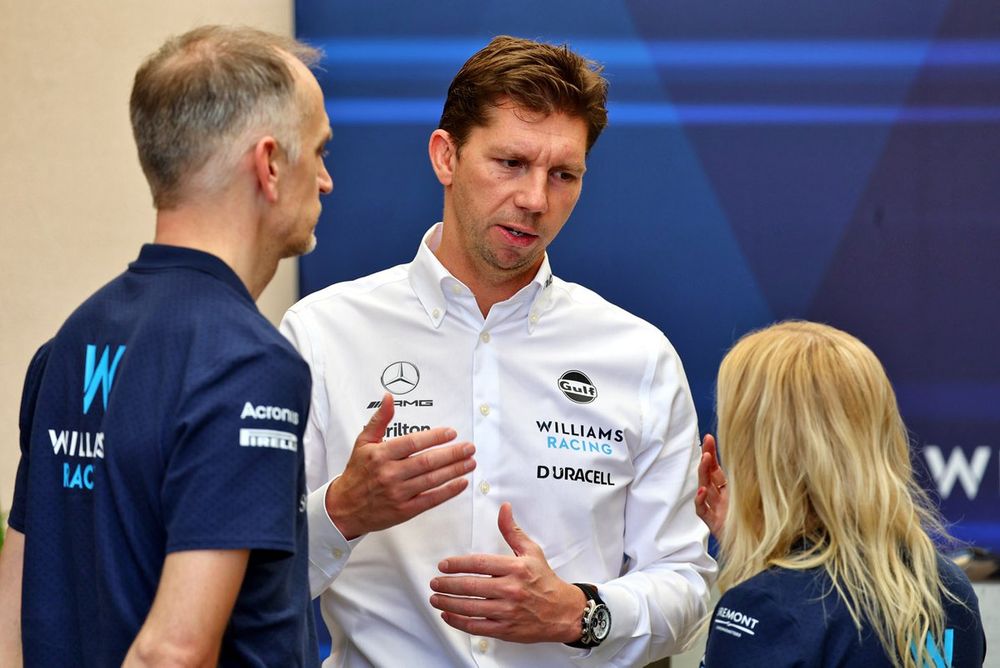
During the off-season Vowles moved from a Mercedes team that won eight consecutive world championships to a squad that finished bottom in four of the past five seasons.
After years of under-investment, Williams' facilities were always going to pale compared to those of the Brackley squad. But Vowles has discovered some elements that are a world away from what is needed to compete at the front.
When asked by Autosport what the difference was between Williams and a top team like Mercedes, he said: "I think everything. There are not many, but some elements of the organisation are of a similar level to Mercedes.
"There are some elements that are 20 years out of date, which makes sense if you think through the history of this team.
"The investment it had was zero for around about 20 years, and then an investment firm came through.
"Fundamentally, we're in a situation where a lot of facilities were almost preserved from where they were 20 years ago.
"Composites is behind what I knew when I first came into the sport with a different team 20 years ago..."

But according to Vowles, it is not just the Grove team's equipment, but also its staff that must evolve if it is to aspire to the highest standards.
"If you take a group of people and hide them away, and take another group of people and hide them away, they evolve to different stages," he explained.
"And that's what's happened. The view of what excellence is is completely different to what it really is today, and you have to move things forward.
"Internally, a lot of the work I've been asking them to do has been likened to asking us to do three years of development in six months. Yes, but that's the standard. In fact, the standard is higher than that.
"This is where I think we have to have a middle step. You have to show people the pathway, lead them down the pathway and make sure you support them and provide them with the equipment that allows them to do the same thing.
"The other thing [regarding] people is that very clearly at Mercedes, you could attract near enough anyone you wanted with one phone call."
According to Williams' Head of Vehicle Performance Dave Robson, Vowles' fresh perspective and Mercedes experience have made the team realise that there is "more to do than we thought there was. Getting his experience of what state-of-the-art genuinely looks like has been quite enlightening."

Thankfully for Vowles, his new team appears to have embraced his approach rather than hit the snooze button on his overdue wake-up call.
"If the organisation had rejected me, we would have had a problem," he said.
"But it hasn't. It's done the complete opposite. This organisation knows that we need to change and that we need to move on. That we need to evolve to have success. And everyone is ready to do that."
If Williams is to address its ageing facilities, it will need some help from F1 and the FIA to allow it to pour more resources into infrastructure outside of the cost cap.
Currently, teams have a $36m capital expenditure allowance over a four-year period, which is not enough to cover big-ticket items. Teams can request a specific exemption, such as Aston Martin did for its new wind tunnel.
Vowles found an ally in Alpine's Otmar Szafnauer, who warned F1 against "baking in the top teams' advantage" by leaving the allowance untouched, and a solution is set to be signed off next month.
"Formula 1 and the FIA have been very supportive, because within the first week of being here, I showed them: 'This is what I had at Mercedes, here's what I have at Williams. There's zero chance that we will be able to compete with this.'
"And I think where we are now is that by July that will be signed and teams like ourselves will be able to invest to catch back up."







